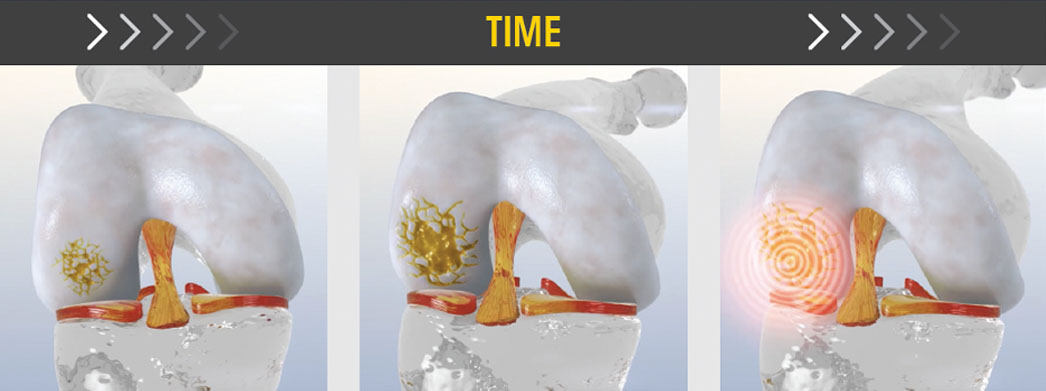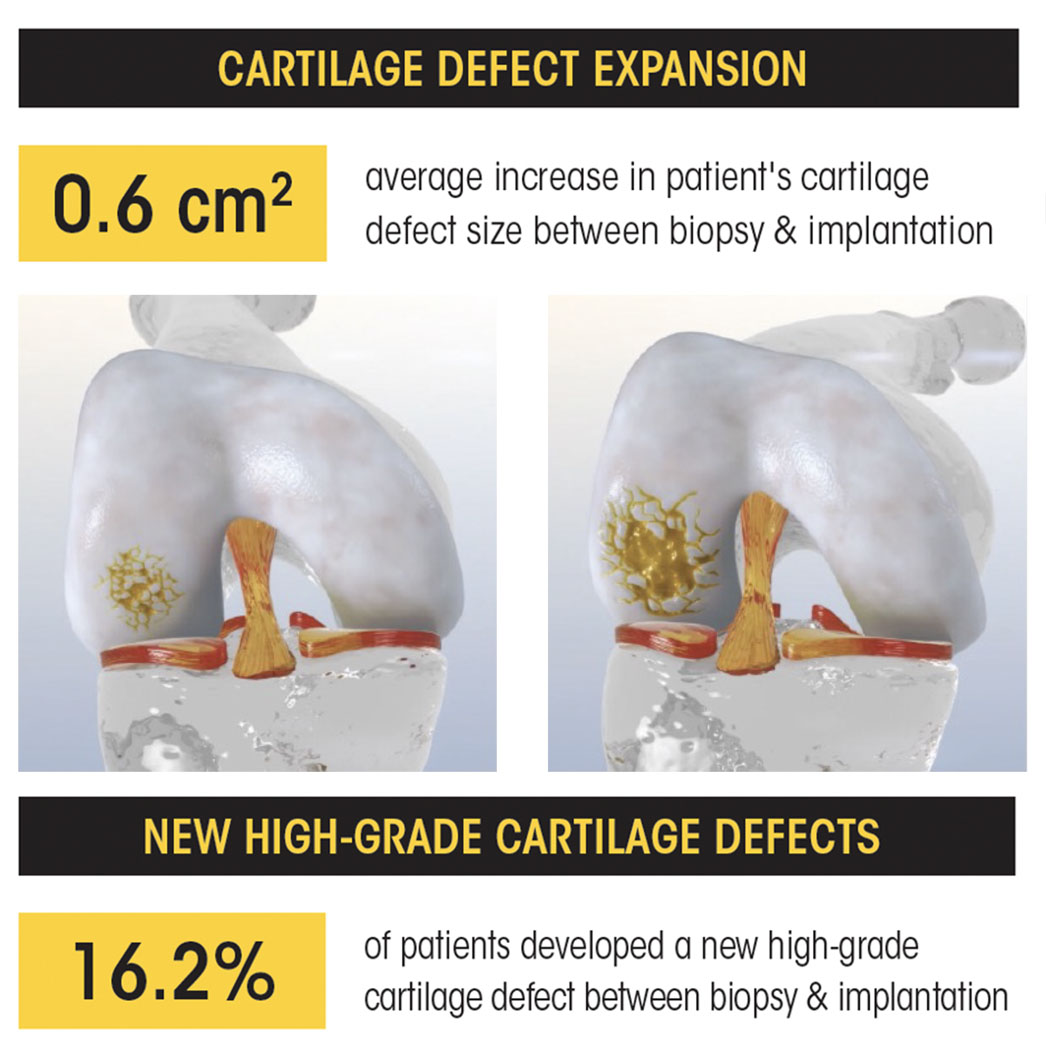
A study shows us why patients shouldn’t wait when it comes to treating their knee cartilage pain.
It can lead to worsening knee cartilage damage and new defects.
The Study Findings
The study “Time Matters” analyzes how delays between cell-based cartilage biopsy and implantation can allow a patient’s cartilage damage to grow larger and new damage to appear.
Researchers examined more than 100 knee ACI (Autologous Chondrocyte Implantation) and MACI cases by a single surgeon. Once candidacy for cell-based therapy is confirmed during a diagnostic arthroscopy, a doctor takes a small cartilage sample for MACI. At a follow up appointment, the doctor will implant MACI to repair a patient’s knee cartilage. The average time between cartilage sample collection and implantation in the study was 155 days (about 5 months).
During that time, patients saw their cartilage damage worsen. The size of patients’ knee cartilage defects increased an average of 0.6 cm2, and 16.2 percent of patients experienced new cartilage defects.

Who’s at Greatest Risk?
The study found that patients who were male, had smaller initial defect sizes, and longer time between surgeries were at greater risk for defect expansion.

How can I avoid delays in my treatment?
Timely treatment with MACI knee cartilage repair can help heal knee cartilage damage and prevent further deterioration. It is important to spot the symptoms of knee cartilage damage early, and talk to your doctor about your treatment options, timeline and goals.
For more on how MACI knee cartilage repair could help you, click here to explore the procedure.
Please see below for full indication and ISI. Blog posts are intended to provide educational information. Always talk to your doctor with any questions.


